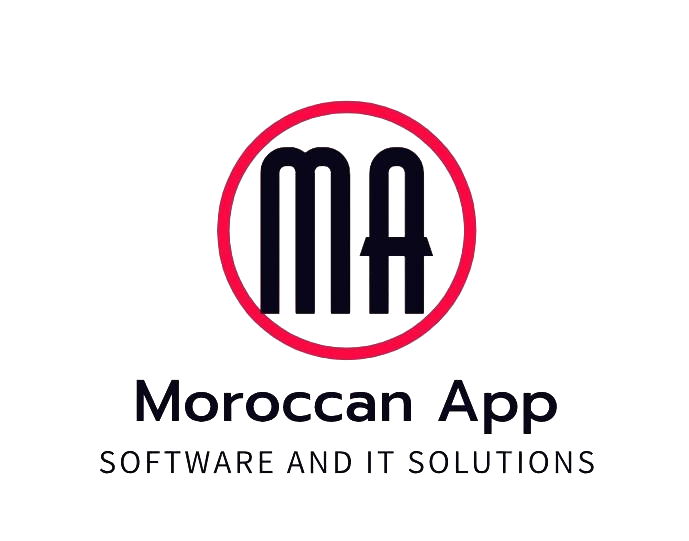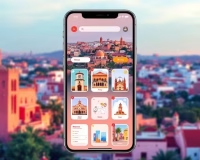- Mon - Sat 8:00 - 17:30, Sunday - CLOSED
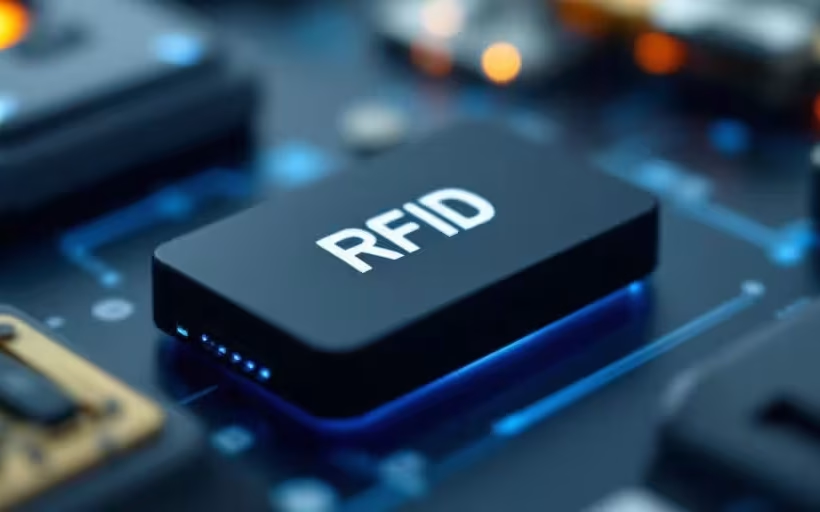
Complete Guide to RFID in Morocco: Applications and Trends
RFID (Radio Frequency Identification) technology is booming in Morocco. It allows objects to be identified and tracked remotely using special labels. This method is increasingly used in various sectors, whether health, agriculture, or industry. This article explores the different applications of RFID in Morocco and the resulting trends. Key Points Applications de la RFID dans le Secteur Public au Maroc RFID technology is increasingly used in the public sector in Morocco, bringing significant improvements in various areas. It allows for more efficient and accurate management of public resources. Library Management In libraries, RFID makes it easier to track borrowed and returned books. This reduces errors and improves service efficiency. Here are some of the benefits: Vehicle Identification RFID is also used for vehicle identification in public services. This allows you to: Gestion Public Services Public services are using RFID to optimize asset management. For example, alkhadim etat civil also uses RFID technology to improve inventory management and asset tracking, providing real-time visibility and control. This includes: RFID is transforming the way utilities operate, making operations more transparent and effective. Use of RFID in Moroccan Industry RFID (Radio Frequency Identification) technology is transforming Moroccan industry. It helps optimize operations and improve process efficiency. Here are some key applications: Production Line Optimization Raw Material Tracking Predictive Equipment Maintenance By integrating RFID, Moroccan companies can not only improve their efficiency, but also reduce operational costs and increase their competitiveness in the market. RFID in the Agricultural Sector in Morocco RFID technology plays a crucial role in the agricultural sector in Morocco. It allows for efficient management of agricultural resources and ensures optimal traceability of products. Here are some key applications: Livestock Management Traceability of Agricultural Products Compliance with Health Standards RFID is transforming agriculture by enabling automated monitoring and proactive resource management, which is essential to meet the modern challenges of the sector. Application Benefits Livestock Management Accurate tracking, reduction of losses Product Traceability Guaranteed Quality, Assured Compliance Health Compliance Effective Monitoring, Increased Transparency RFID Technology in the Health Sector Medical Equipment Tracking RFID technology is essential for tracking medical equipment in hospitals. With RFID tags, facilities can know where their devices are at all times. This reduces losses and improves the efficiency of care. Patient Monitoring RFID wristbands are used to monitor patients in real-time. These devices help medical staff track vital signs and manage treatments. This contributes to better quality of care and rapid response in case of emergency. Medication Management RFID plays a crucial role in medication management. It helps track inventory, check expiration dates, and prevent dispensing errors. This ensures that patients receive the right medication at the right time. RFID is transforming the healthcare industry by making operations safer and more efficient. Hospitals can thus focus on what really matters: the well-being of patients. Case Studies of RFID Success in Morocco The adoption of RFID technology in Morocco has enabled several companies to improve their operations. Here are some concrete examples: Maroc Telecom and Inventory Management Royal Air Maroc et le Suivi des Bagages Label’Vie et l’Optimisation des Inventories These companies demonstrate how the use of modern technologies in inventory management has revolutionized their operations. In conclusion, RFID has proven its effectiveness in various sectors in Morocco, bringing significant improvements in inventory management and customer satisfaction. Challenges and Solutions for the Implementation of RFID in Morocco The implementation of RFID technology (Radio Frequency Identification) in Moroccan companies presents several challenges, but solutions exist to overcome them. Initial Cost and Financing Technical Complexity and Training Data Security and Protection Solutions Proposées Implementing RFID in Morocco requires a strategic approach and adequate resources, but solutions exist to help companies navigate these challenges successfully. Perspectives d’Avenir et Innovations de la RFID au Maroc RFID technology continues to transform the business landscape in Morocco, providing opportunities for innovation and improvement. Here are some key areas of development: Integration with the Internet of Things Improvements in Traceability Collaboration avec les Instituts de Recherche By exploring these areas, Moroccan companies can not only improve their efficiency, but also position themselves as leaders in the adoption of advanced technologies. In a constantly changing world, RFID technology in Morocco opens the way to new opportunities and innovations. By exploring these future prospects, you can transform your business and stay at the forefront of technology. Don’t wait any longer, visit our site to find out how we can help you integrate these innovative solutions into your strategy! Conclusion In conclusion, RFID technology represents a valuable opportunity for Moroccan companies. It improves inventory management, optimizes processes and ensures better product traceability. Various sectors, such as healthcare, agriculture and commerce, can benefit from this innovation. However, to take full advantage of RFID, it is essential that companies invest in training and implementing suitable systems. By overcoming implementation challenges, Moroccan companies can not only increase their efficiency, but also position themselves as key players in the adoption of modern technologies. Frequently Asked Questions What is RFID technology and how does it work? RFID, or radio frequency identification, uses radio waves to identify and track objects. It works through labels that contain information and readers that capture this information remotely. What are the advantages of RFID for Moroccan companies? RFID helps companies better manage theirstocks, improve product traceability and reduce losses. This makes operations more efficient. In which sectors is RFID used in Morocco? RFID is used in various sectors such as health, agriculture, industry, transportation and retail, to improve management and security. How does RFID help reduce errors in inventory management? It helps track products in real-time, which reduces human errors during inventories and improves data accuracy. What challenges do companies face when implementing RFID? The main Challenges include high initial cost, technical complexity, and data security issues. What solutions exist to overcome the challenges of RFID? Companies can seek funding, invest in staff training and adopt compatible systems to facilitate integration.
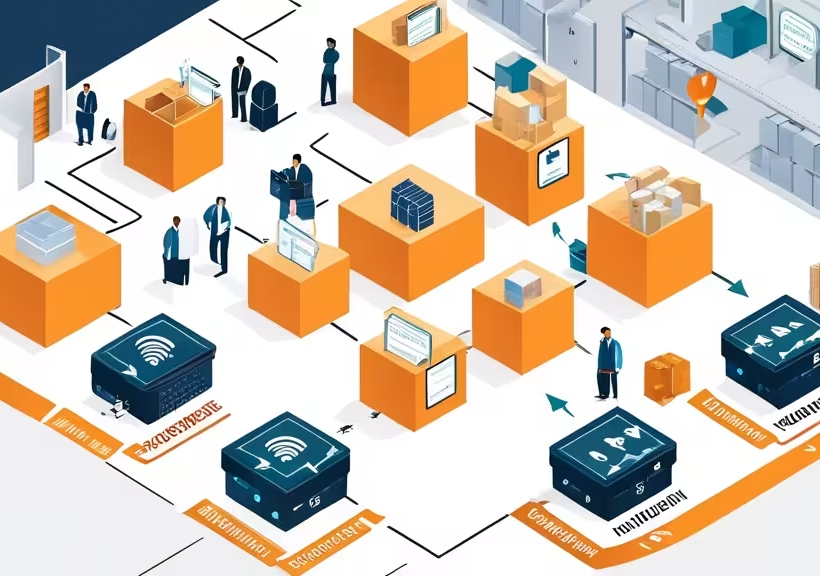
The benefits of RFID technology for Moroccan companies
Introduction to RFID Technology RFID technology (Radio Frequency Identification) is a wireless communication method that uses radio waves to identify and track objects equipped with special chips. These chips, called RFID tags, contain information that can be read remotely by RFID readers. This technology is distinguished by its ability to capture data without direct contact and without requiring line of sight, making it particularly suitable for many industrial and commercial applications. Key components of an RFID system include: RFID tags fall into two categories: Benefits of RFID technology include: These features make RFID technology a powerful tool for Moroccan companies looking to optimize their operations and improve their competitiveness in the global market. How RFID Technology Works RFID (Radio Frequency Identification) technology uses radio waves to identify and track objects automatically. It consists of three main elements: RFID tags, RFID readers and the information system. Working Process Benefits for Moroccan companies: History and evolution of RFID RFID (Radio Frequency Identification) technology has its origins in the 1940s. It was initially developed as a secure communication method during World War II. Since then, RFID has undergone several significant stages of evolution, transforming its use and extending it to various industrial sectors.
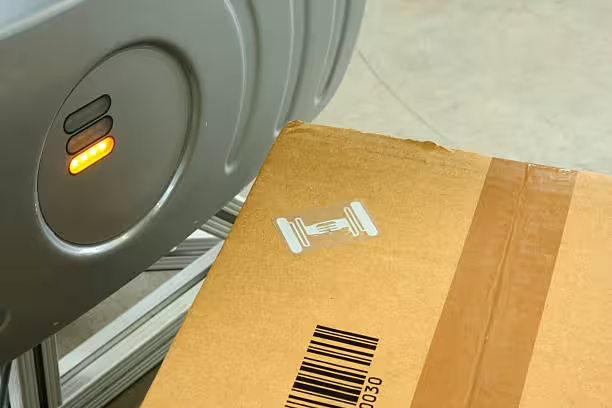
How to Use RFID in Morocco: Complete Guide
RFID technology is rapidly transforming the business landscape in Morocco. Moroccan companies are adopting this radio frequency identification solution to improve their operational efficiency. This technology is becoming a key element of digital transformation in several sectors, from agriculture to logistics. This comprehensive guide examines the practical applications of RFID in Morocco and its benefits for businesses. Readers will discover the steps to implement an RFID system, best practices for inventory management, and solutions tailored to Moroccan SMEs. The article also addresses the current challenges and future prospects of this technology in the Moroccan context. Understanding RFID Technology Radio Frequency Identification (RFID) represents a major advance in the field of automatic identification. This technology uses radio waves to store and retrieve data remotely, offering remarkable possibilities for managing and tracking objects. The RFID system is based on two essential components: tags (or labels) and readers. RFID tags, consisting of an electronic chip and an antenna, can store up to 64,000 bits of data, allowing precise and detailed identification of objects. There are three main types of RFID tags: RFID technology is distinguished by its ability to read hundreds of tags simultaneously per second, without requiring a direct line of sight between the reader and the tag. Data can not only be read but also modified or rewritten, providing exceptional flexibility in information management. A complete RFID system also integrates a middleware that processes the collected data and transmits it to the company’s information system. This architecture allows for automated and efficient data management, contributing to improved traceability and inventory management. RFID Applications in Morocco In Morocco, RFID technology is revolutionizing many sectors of activity, offering innovative solutions for operations management. In the supply chain field, this technology enables real-time visibility and efficiency, eliminating errors throughout production, warehousing and distribution operations. The main applications of RFID in Morocco include: In the industrial sector, RFID allows companies to track their products at every stage of production and marketing. RFID tags offer significantly greater storage capacity than traditional barcodes, allowing to process up to 100 tags per second. The technology is also transforming retail. Moroccan retailers are using RFID to automate their inventories and reduce stockouts. RFID gates installed at the entrance and exit of stores provide effective protection against theft. This solution not only optimizes inventory management but also significantly improves the customer purchasing experience. In logistics, Moroccan companies are seeing a significant improvement in their operational efficiency. The technology makes it possible to synchronize physical flows with information flows, providing complete traceability and better anticipation of supply chain malfunctions. Implementation of an RFID system Implementing an RFID system requires a methodical and well-planned approach to ensure its success. Companies should follow a structured process that begins with a thorough pre-study phase to choose the RFID technology that best suits their specific needs. Essential implementation steps include: To ensure successful integration, several critical factors must be considered: End-user involvement is crucial, because the best technological system only works if users comply with its operating mode. Success is based on the combination of three fundamental parameters: the choice of the appropriate RFID standard, the establishment of a precise operating mode, and effective change management. The reliability rate of the system can be optimized thanks to a well-defined and integrated operating mode. Companies must also plan the modification of the activity’s IT management system and promote the rapprochement of several actors around the RFID project. Challenges and future prospects of RFID in Morocco Despite its transformative potential, the deployment of RFID in Morocco faces several significant challenges. The implementation cost remains a major obstacle, with RFID tags costing between ten cents and one euro, five to ten times more expensive than traditional barcodes. Key technical challenges include: Nevertheless, the future prospects are promising. The market for IT equipment for logistics in Morocco is experiencing an impressive growth of 30% to 40% per year. The country’s strategic geographical position, including its proximity to the Eurozone, offers significant opportunities for the expansion of RFID technology. Environmental ambitions are also supporting RFID adoption, with national targets to reduce CO2 emissions by 35%. This technology is perfectly aligned with the national strategy for the development of logistics competitiveness, which emphasizes modernization and operational efficiency. The Tanger-Med port plays a crucial role in this transformation, serving as a strategic hub for the flow of goods to Europe, America, West Africa and Asia. This infrastructure, combined with the flexibility of the Moroccan workforce, positions Morocco as a key player in the adoption of RFID technologies on a regional scale. Conclusion RFID technology marks a decisive step in the modernization of Moroccan companies. Radio frequency identification solutions demonstrate their added value across various sectors, from inventory management to product security. The positive results observed in companies that have adopted this technology confirm its essential role in improving productivity and reducing operational costs. Morocco is positioning itself as a major player in the adoption of RFID technologies in Africa, driven by its strategic geographical location and modern infrastructure. Despite the initial implementation challenges, future prospects remain promising, supported by the continued growth of the logistics market and government initiatives in favor of digital transformation. Moroccan companies that are investing in RFID today are giving themselves the means to effectively meet the growing demands for traceability and operational efficiency. FAQs Q: How can I use an RFID card?A: To use an RFID card, simply pass it in front of an RFID reader. This contactless system allows, for example, to recharge an electric vehicle while securing access and payment. Q: What are the steps to activate RFID on a device?A: To activate RFID, you must first activate the network on a smartphone via the Settings/Networks menus. Then, install an application like NFC Tools on Android, bring the smartphone within 10 cm of the RFID tag and program the desired action. Q: How does RFID access work?A: The RFIDpassive, which does not have a battery, works in read-only mode. The reader sends an electromagnetic signal to

RFID Technology in Morocco: Applications and Innovations
RFID Technology (Radio Frequency Identification) is gaining popularity in Morocco. It is a game-changer in industry and commerce, offering innovative solutions that make operations more efficient. It also helps with better stock management and tracking assets and the supply chain. Moroccan businesses are using these advancements to modernize and become more competitive. RFID technology is used in logistics and inventory management, and it also enhances the customer experience in stores. It is transforming the way products are tracked and controlled. The integration of RFID with the Internet of Things (IoT) and cloud solutions is opening new doors. This allows Moroccan companies to engage in innovation and digital transformation. Key Takeaways Current State of RFID Technology in Morocco Morocco is becoming a leader in the use of RFID technology. This revolutionary technology enhances efficiency and customer experience across multiple sectors. The implementation of RFID is becoming increasingly common. Adoption Across Different Sectors RFID technology is becoming more popular in Morocco. It is used in: Existing Technological Infrastructure Morocco has a developing RFID infrastructure, which includes: Key Market Players The Moroccan RFID market is driven by several key players, including: Companies Areas of Expertise Company X Design of RFID systems for logistics and traceability Company Y Integration of RFID solutions into enterprise information systems Company Z Manufacturing and distribution of RFID tags and readers tailored to local needs These smart technology solutions in Morocco based on RFID technology open new perspectives. They are gradually transforming practices in many sectors. Industrial and Logistics Applications RFID technology is very useful in industry and logistics in Morocco. It helps better manage inventory, track products, and improve production. RFID in Logistics and Supply Chain RFID in logistics and supply chain makes goods more visible. Companies in Morocco can better control their inventories. This reduces errors and improves stock management. RFID in the Manufacturing Sector In the manufacturing sector, RFID is essential. It automates production and tracks assets in real time. This optimizes processes, reduces downtime, and improves quality. Advantages of RFID in Industry Application Examples Product traceabilityOptimized inventory managementProcess automationError reductionQuality improvement Tracking shipments and deliveriesAsset and equipment managementProduct quality controlProduction line optimizationSecuring storage areas Companies in Morocco are increasingly using RFID. They aim to be more efficient, productive, and competitive in the market. “RFID has transformed our supply chain, allowing us to accurately track our products and respond quickly to customer demands.” – CEO, Automotive Manufacturing Company RFID in Moroccan Retail RFID technology is crucial for the digital transformation of retail in Morocco. It helps manage inventory, improve customer experience, and prevent losses. Moroccan retailers are increasingly adopting it. Inventory Management Solutions RFID tags and readers allow merchants to track their inventory in real time. This optimizes shelf management. Increased visibility reduces stockouts and improves item turnover. Enhanced Customer Experience Using RFID technology makes shopping smoother. Customers benefit from a personalized experience. Features like automatic item detection at checkout make purchasing easier. Loss Prevention RFID allows precise tracking of inventory and movements. This helps prevent theft and restocking errors. The technology optimizes margins and improves profitability. RFID solutions offer many advantages to retailers in Morocco. They transform the shopping experience and improve inventory management and profitability. Digital Transformation of Moroccan Businesses Digital transformation in Morocco is advancing rapidly. Companies are adopting RFID technology to boost their digitalization. This technology enhances efficiency, decision-making, and innovation. RFID helps Moroccan companies automate their operations. This reduces errors and optimizes stock management. Leaders can make informed decisions thanks to real-time data. RFID also paves the way for innovation. It enables the development of traceability solutions and improves customer experience. It’s a major asset for the digital transformation of Moroccan companies. “RFID is a key element of digital transformation, enabling companies to increase their efficiency and competitiveness.” Morocco is engaging in its digital transformation. RFID technology is essential for the digital transformation of businesses. It offers numerous strategic and operational advantages. Traceability and Real-Time Tracking Solutions RFID tracking solutions are changing asset management for Moroccan companies. They enable real-time tracking of key elements, improving quality control and helping to make better decisions. Asset Tracking Systems RFID asset tracking systems help locate and monitor equipment and resources. This reduces losses and improves asset utilization. Supply Chain Management Using RFID technology in the supply chain ensures perfect traceability. It enhances forecasting, inventory management, and logistics flow coordination. Quality Control RFID tracking solutions allow for real-time monitoring of product quality. This helps identify and quickly address issues, ensuring product quality. “RFID technology has revolutionized how we manage our assets and supply chain. We’ve significantly improved our operational efficiency and customer satisfaction.” – Operations Manager, Moroccan Logistics Company Security and Authentication with RFID RFID technology is crucial for security and authentication in Morocco. It helps combat counterfeiting and secures access to locations. Additionally, it protects official documents. Counterfeit Protection RFID enables automated tracking of products, preventing the circulation of counterfeit goods. This technology is widely used in luxury and electronics sectors to protect brands. Secure Access Control RFID authentication systems are common for access control. They are used in businesses and government buildings. RFID badges quickly identify authorized individuals and block unauthorized access. Securing Official Documents RFID also secures identity documents and passports. RFID chips instantly verify the authenticity of these documents, reducing the risk of forgery. RFID technology enhances security and authentication across various fields in Morocco. It is seen as a promising emerging technology. Recent Innovations and Developments The Moroccan RFID technology market is booming, with numerous innovations transforming industries. These advancements are paving the way for exciting new applications. Moroccan companies are exploring the latest advancements, aiming to improve efficiency, traceability, and customer experience through integration with the Internet of Things (IoT) and cloud computing. New Applications RFID is increasingly used in sectors like healthcare, agriculture, and transportation. For example, RFID bracelets monitor patients’ health in real time, while RFID sensors enhance crop production and traceability in agriculture. IoT Integration Cloud Solutions Moroccan companies are adopting cloud-based RFID solutions, benefiting

Alkhadim RFID – The complete inventory management and tracking solution based on RFID technology
Discover Alkhadim RFID, an innovative solution designed to transform inventory management, asset tracking, and logistics within businesses. Powered by RFID (Radio Frequency Identification) technology, Alkhadim RFID provides real-time traceability, enhanced accuracy, and automated stock management processes, making it ideal for sectors like retail, warehousing, logistics, and document management. Key Features: Real-time tracking of stock and assets Automated inventory and stock updates Enhanced data accuracy, reducing human errors Efficient access and security management with custom RFID badges Detailed reports and analytics for informed decision-making Why Choose Alkhadim RFID? Our Alkhadim RFID solution enhances operational efficiency by reducing stock loss and increasing productivity. With a user-friendly interface and broad compatibility with various RFID equipment, Alkhadim RFID meets the needs of modern businesses in asset and inventory management. Use Cases: Retail: Track products on shelves, rapid inventory, and control of entries and exits Logistics: Track parcels and pallets in warehouses Archives and Libraries: Document management, tracking loans and returns Industry: Track equipment and tools Contact us for a demonstration or more information. To learn more about Alkhadim RFID, get in touch with our team and discover how our solution can optimize your asset management processes. Tags: #AlkhadimRFID #InventoryManagement #RFID #Logistics #StockTracking #Traceability #Automation #RFIDTechnology

React Native: The Essential Guide to Mobile App Development
Here’s an overview: Introduction to React Native React Native is a popular JavaScript framework for building cross-platform mobile applications. It allows developers to use React, a powerful JavaScript library for building user interfaces, to create efficient and engaging mobile apps for both iOS and Android platforms. Here are some key points to understand about React Native: Cross-platform Development: React Native enables developers to write code once and deploy it across multiple platforms, saving time and effort in managing separate codebases. This approach helps in faster development and maintenance of mobile applications. Native Performance: By leveraging native components, React Native apps can deliver high performance similar to native apps. This ensures a smooth user experience without compromising on speed or responsiveness. Hot Reloading: One of the key features of React Native is its hot reloading capability, which allows developers to see the changes they make in real-time without the need to recompile the entire application. This feature speeds up the development process and enhances productivity. Large Community Support: React Native has a large and active community of developers who contribute to its continuous improvement. This vibrant community provides access to numerous resources, libraries, and tools that can help developers in building and optimizing mobile apps. Cost-effective Solution: Since React Native allows for code reusability across platforms, it can significantly reduce development costs compared to building separate native apps for iOS and Android. This makes it an attractive choice for businesses looking to develop mobile applications on a budget. In summary, React Native offers a versatile and efficient solution for mobile app development, with its cross-platform compatibility, native performance, hot reloading feature, community support, and cost-effectiveness making it a popular choice among developers. Setting Up Your Development Environment Setting up a robust development environment is crucial for React Native app development. To ensure a smooth workflow, follow these steps: Install Node.js: React Native requires Node.js to be installed on your machine. Download and install the latest version from the official Node.js website. Install React Native CLI: Use npm to install the React Native Command Line Interface globally on your system. This CLI tool allows you to create, build, and run React Native projects. Install a Code Editor: Choose a code editor that best suits your preferences. Popular options include Visual Studio Code, Sublime Text, and Atom. Customize your editor with relevant extensions for improved productivity. Set Up an Emulator or Connect a Physical Device: To test your React Native apps, you can either set up an emulator or connect a physical device. Android Studio provides a built-in emulator for Android testing, while Xcode offers an iOS simulator for Apple device testing. Install Xcode and Android Studio: For iOS development, install Xcode, the official IDE for Apple platforms. For Android development, install Android Studio, which provides the necessary tools for Android app development. Configure your Development Environment: Ensure that all necessary paths and environment variables are correctly set up to avoid any compatibility issues during development. By carefully setting up your development environment following these steps, you can streamline the React Native app development process, making it easier to build and test mobile applications efficiently. Understanding React Native Fundamentals React Native is a popular framework used for developing mobile applications using JavaScript and React. It allows developers to create cross-platform mobile apps with a single codebase that can run on both iOS and Android devices. React Native uses a declarative programming style, making it easier to build UI components and manage application state. Developers can leverage React Native’s hot reloading feature, allowing them to see changes in real-time without recompiling the app. The framework provides access to native APIs, enabling developers to integrate device-specific functionalities seamlessly. React Native uses JavaScriptCore to run JavaScript code and the native components to render the user interface. Components in React Native are reusable, making it efficient for developing and maintaining mobile applications. Developers can use third-party libraries and plugins to extend the functionality of their React Native applications. React Native offers a rich set of developer tools, such as React DevTools and React Native Debugger, for debugging and testing applications. Understanding the fundamentals of React Native, including components, props, state management, and navigation, is essential for building robust and performant mobile apps. Navigating the React Native Ecosystem React Native offers a rich ecosystem with various libraries, tools, and resources to enhance mobile app development. Here are key aspects to navigate the React Native ecosystem effectively: Core Components: React Native provides a robust set of core components that facilitate building UI elements smoothly. Developers can leverage these components to create interactive user interfaces efficiently. Third-Party Libraries: Explore the plethora of third-party libraries available for React Native. These libraries extend the functionality of your apps by offering solutions for navigation, state management, animations, and more. Developer Tools: Familiarize yourself with developer tools like React DevTools and React Native Debugger. These tools aid in debugging, profiling, and optimizing your React Native applications, enhancing the development process. Community Support: Engage with the vibrant React Native community through forums, meetups, and online resources. Community support enables developers to seek guidance, share knowledge, and stay updated with the latest trends in React Native development. Integration with Native Code: Understand how React Native enables seamless integration with native code. By incorporating native modules and accessing device APIs, developers can access platform-specific features and functionalities for their apps. Testing and Debugging: Implement thorough testing strategies using tools like Jest and Detox to ensure the reliability and performance of your React Native apps. Effective testing and debugging practices enhance the quality of mobile applications. Continuous Learning: Stay updated with the evolving React Native ecosystem by exploring documentation, tutorials, and online courses. Continuous learning empowers developers to adapt to new features, best practices, and optimizations in mobile app development. Navigating the React Native ecosystem requires a blend of exploration, learning, and community engagement to leverage the full potential of this powerful framework. Creating Your First React Native App First, ensure Node.js and npm are installed. Use Node.js to create a new React Native project with the command npx react-native
